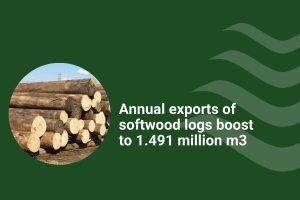The composite index of producer prices for the ‘Wood Product Manufacturing’ Group rose 2.5% over 2014, compared with 2013. This was exactly in line with the composite index for the entire Manufacturing Division.
Within the Wood Product Manufacturing group, there is a mix of both input and output price movements.
The chart below shows the Producer Price Index (PPI) for a range of related manufacturing sectors and for the composite Manufacturing Division.
Fig 11

Over the course of 2014, while the PPI for the Wood Product Manufacturing group rose 2.5%, for the Pulp, Paper & Paper Product group, it was just 0.4%. For the Furniture and Other Manufacturing group it was a similar 0.7%, although the specific PPI for Furniture Manufacturing rose 1.3% over the year.
On average, the cost of manufacturing wood products rose higher than for other and related industries, including those it supplies. Although the 2014 difference is modest, the implication may be that the ability of sectors relying on wood product manufacturing find it more difficult to achieve price increases. However and on the other hand, some price rises have been observed where related to the supply of wood products to the buoyant housing industry.
PPI data from the Australian Bureau of Statistics is collated and released quarterly, allowing for a more granular examination of average price movements.
For the Wood Product Manufacturing group, price rises were experienced in each of the first three quarters, before a fall of 0.7% in the December Quarter, compared with the September Quarter.
The PPI can be examined at http://www.abs.gov.au/Ausstats/abs@.nsf/mf/6427.0.



